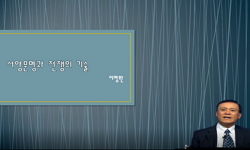This article examines the relationship between Kant's anthropology and disability(cognitive disability), with a specific focus on Kant's empirical works, notably “Essay on the maladies of the head”(1764) and Anthropology from a pragmatic point of ...
http://chineseinput.net/에서 pinyin(병음)방식으로 중국어를 변환할 수 있습니다.
변환된 중국어를 복사하여 사용하시면 됩니다.
- 中文 을 입력하시려면 zhongwen을 입력하시고 space를누르시면됩니다.
- 北京 을 입력하시려면 beijing을 입력하시고 space를 누르시면 됩니다.
부가정보
다국어 초록 (Multilingual Abstract)
This article examines the relationship between Kant's anthropology and disability(cognitive disability), with a specific focus on Kant's empirical works, notably “Essay on the maladies of the head”(1764) and Anthropology from a pragmatic point of view (1798). This article sheds light on how Kant perceived cognitive disabilities, what types of disabilities he took issue with in relation to humanity(personality), how he denied the personality of the disabled, and justified their social exclusion and deprivation of rights. Kant defines disability as the reversal or absence of cognitive capacities; however, this understanding surpasses mere reversal or absence. According to Kant, humanity is defined by these capacities, particularly reason. Consequently, people with mental disorders (madmen) and intellectual disabilities (idiots) are devalued and considered less than human. Notably, Kant characterizes those with intellectual disabilities as humans permanently confined to a natural state (homo natura), rendering civilization and moralization through a civil constitution impossible. By animalization of intellectual disability, Kant's anthropology establishes the foundation for the marginalization and denial of rights for intellectually disabled people. This perspective is intricately linked to the discrimination faced by various marginalized groups such as black people, children, and women.
국문 초록 (Abstract)
이 글은 칸트의 경험적 저작들, 특히 「두뇌의 질병들에 관한 시론」(1764)과 실용적 관점에서의 인간학(1798)을 중심으로 칸트의 인간학과 장애(인지장애)의 관계를 검토한 것이다. 칸�...
이 글은 칸트의 경험적 저작들, 특히 「두뇌의 질병들에 관한 시론」(1764)과 실용적 관점에서의 인간학(1798)을 중심으로 칸트의 인간학과 장애(인지장애)의 관계를 검토한 것이다. 칸트가 장애를 어떻게 인식했는지, 인간다움(인격)과 관련해서 어떤 유형의 장애들을 문제 삼았는지, 어떤 방식으로 해당 장애인들의 인격을 부인하고, 이들의 사회적 배제와 권리 박탈을 정당화했는지를 살펴보았다. 칸트의 장애에 대한 분류는 그의 선험론적 인식능력들에 대한 분류를 따른다. 장애란 인식능력들이 전도되거나 부재한 경우에 해당한다. 하지만 이것은 단순한 전도나 부재가 아니다. 칸트가 이러한 능력들(특히 이성)로 인간다움을 규정하기 때문이다. 따라서 인식능력에 결함이 있는 정신장애인(능력이 전도된 광인)과 지적장애인(능력이 부재한 백치)은 인간답지 못한 인간으로 취급된다. 특히 인식능력이 없는 백치는 사실상 인격이 없는 인간, 시민정체를 통한 시민화(문명화) 및 도덕화가 불가능한 인간, 사실상 문명 속에서 자연상태를 살 수밖에 없는 인간으로 간주된다. 지적장애를 동물화(자연화)함으로써 지적장애인의 사회적 배제와 권리 박탈의 근거를 제공했다고 할 수 있다. 그리고 이것은 흑인과 아이, 여성 등의 권리 차별과도 무관치 않은 것이었다.
참고문헌 (Reference)
1 권오상, "해리성 정체감 장애에 대한 철학적 고찰 - 칸트의 순수이성비판을 중심으로 -" 한국사회와철학연구회 (37) : 157-186, 2019
2 칸트, 임마누엘, "학부들의 다툼" 아카넷 2021
3 칼슨, 리시아, "푸코와장애의통치" 그린비출판사 182-205, 2020
4 칸트, 임마누엘, "판단력비판" 아카넷 2009
5 푸코, 미셸, "칸트의 인간학에 관하여" 문학과지성사 2012
6 칸트, 임마누엘, "칸트의 역사철학" 서광사 2009
7 강영안, "칸트의 물음 : "인간이란 무엇인가?"" 35 : 39-66, 2014
8 김수배, "철학실천적 관점에서 본 칸트 철학" 철학연구소 54 : 141-167, 2018
9 테일러, 수나우라, "짐을 끄는짐승들" 오월의 봄 2020
10 아렌트, 한나, "전체주의의 기원1" 한길사 2006
1 권오상, "해리성 정체감 장애에 대한 철학적 고찰 - 칸트의 순수이성비판을 중심으로 -" 한국사회와철학연구회 (37) : 157-186, 2019
2 칸트, 임마누엘, "학부들의 다툼" 아카넷 2021
3 칼슨, 리시아, "푸코와장애의통치" 그린비출판사 182-205, 2020
4 칸트, 임마누엘, "판단력비판" 아카넷 2009
5 푸코, 미셸, "칸트의 인간학에 관하여" 문학과지성사 2012
6 칸트, 임마누엘, "칸트의 역사철학" 서광사 2009
7 강영안, "칸트의 물음 : "인간이란 무엇인가?"" 35 : 39-66, 2014
8 김수배, "철학실천적 관점에서 본 칸트 철학" 철학연구소 54 : 141-167, 2018
9 테일러, 수나우라, "짐을 끄는짐승들" 오월의 봄 2020
10 아렌트, 한나, "전체주의의 기원1" 한길사 2006
11 김도현, "장애학의 도전" 오월의봄 2019
12 홍우람, "인식론적 관점에서 본 칸트의 『인간학』 - 『인간학』에서 재구성된 칸트의 경험적 인식 이론" 인문학연구원 121 : 181-213, 2021
13 칸트, 임마누엘, "영구평화론" 서광사 2008
14 칸트, 임마누엘, "실천이성비판" 아카넷 2002
15 싱어, 피터, "실천윤리학" 철학과현실사 1997
16 백종현, "실용적관점에서의 인간학" 아카넷 27-57, 2014
17 칸트, 임마누엘, "실용적 관점에서의 인간학" 아카넷 2014
18 칸트, 임마누엘, "순수이성비판" 아카넷 2006
19 니체, 프리드리히, "선악의 저편" 아카넷 2018
20 고병권, "살아가겠다" 삶창 2014
21 칸트, 임마누엘, "비판기 이전 저작III(1663-1777)" 한길사 1777
22 재럿, 사이먼, "백치라 불린 사람들" 생각이음 2023
23 푸코, 미셸, "말과 사물" 민음사 2012
24 칸트, 임마누엘, "논리학/교육론" 한길사 2021
25 푸코, 미셸, "광기의 역사" 나남출판사 2003
26 스컬, 앤드루, "광기와 문명" 뿌리와이파리 2017
27 Fiona Kumari Campbell, "Refusing Able(ness): A Preliminary Conversation about Ableism" Queensland University of Technology 11 (11): 2008
28 Godden, Richard H., "Monstrosity, Disability, and the Posthuman in the Medieval and Early Modern World" Palgrave Macmillan 3-31, 2019
29 Kant, Immanuel, "Kants gesammelte Schriften" Königliche Preußischen Akademie der Wissenschaft/Deutschen Akademie der Wissenschaft zu Berlin 2009
30 Pinheiro, Lucas G., "Disability and Political Theory" Cambridge University Press 43-78, 2016
31 Campbell, Fiona K., "Contours of Ableism –The Production of Disability and Abledness" Palgrave Mcmillan 2009
32 Carlson, Licia, "Cognitive Disability and Its Challenge to Moral Philosophy" Wiley-Blackwell 1-25, 2010
33 Hughes, Bill, "A Historical Sociology of Disability –Human Validity and Invalidity from Antiquity to Early Modernity" Routledge 2020
동일학술지(권/호) 다른 논문
-
- 한국이론사회학회
- 이준엽
- 2023
- KCI등재
-
지능화된 플랫폼과 유기적 연대의 쇠퇴: 뒤르켐 이론의 변용
- 한국이론사회학회
- 김연철
- 2023
- KCI등재
-
디지털화에 따른 노동의 양극화와 사회적 불평등: 사회학적 전망과 과제
- 한국이론사회학회
- 임운택
- 2023
- KCI등재
-
- 한국이론사회학회
- 이선미
- 2023
- KCI등재





 KCI
KCI DBpia
DBpia






